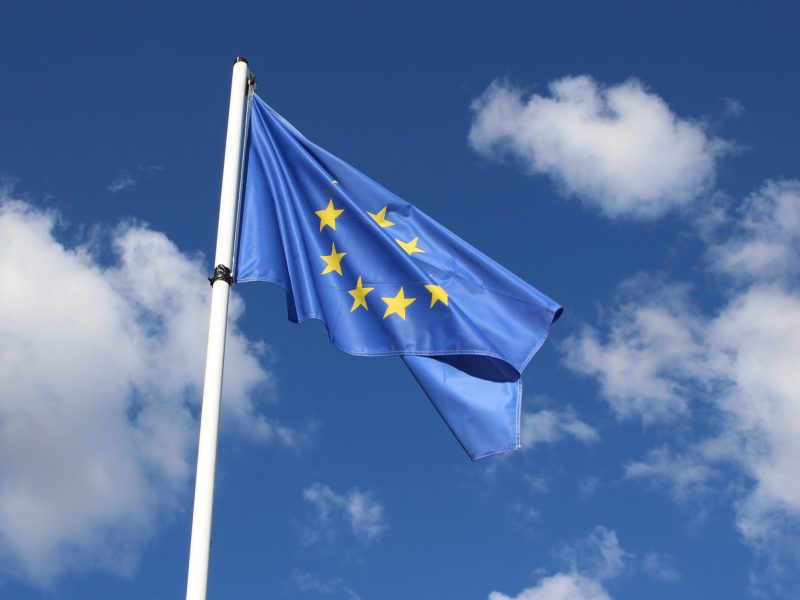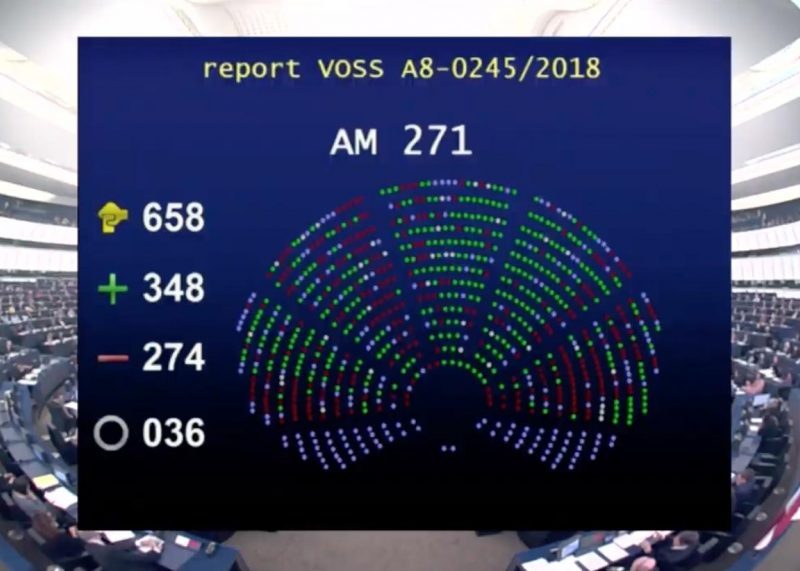
Why the Wikimedia Foundation has not signed on to the Contract for the Web
In November 2019, Tim Berners-Lee and the Web Foundation launched the Contract for the Web, a set of rules designed to address the challenges facing digital communication and participation— from threats to online privacy and security to connectivity and digital inclusion. The multi-stakeholder effort outlines nine principles for governments, companies and citizens designed to safeguard….

Do Europeans have a right to be globally delisted? The Court of Justice of the European Union says no.
Update (May 6, 2020): In 2016, the Wikimedia Foundation intervened in support of Google’s efforts to define the scope of the “right to be forgotten” in France. Faced with an order from the French data protection authority (“CNIL”) to delist information worldwide in response to a right to be forgotten request, Google challenged the order….

The European Commission chooses truly free licenses for its content
Last February, the European Commission defined (pdf) two Creative Commons (CC) licenses as the default for most of what it publishes: Creative Commons Attribution 4.0 International Public License (“CC BY 4.0”) for all content. Commons Universal Public Domain Dedication deed (“CC0”) for raw data, metadata or other documents of comparable nature. The European Commission’s….

Our legal case against Turkey’s block of Wikipedia has been expedited. Here’s what that means.
Today, the Wikimedia Foundation welcomes the news that our case brought before the European Court of Human Rights (ECHR) to lift the block of Wikipedia in Turkey has been communicated to the Turkish Government and given priority status by the court, just two months after the case was filed with the court. Priority status is….

European Court of Human Rights has decided to expedite case on online censorship brought against the government of Turkey for blocking Wikipedia
The European Court of Human Rights (ECHR) has decided to expedite a case brought by the Wikimedia Foundation against the government of Turkey for blocking Wikipedia in the country. The case contends that the longstanding ban amounts to impermissible censorship and limits peoples’ fundamental rights to free expression and access to knowledge. The ban was….

Avrupa İnsan Hakları Mahkemesi, Vikipedi Engelinden Ötürü Türk hükûmetine karşı açılan Çevrimiçi Sansür Davasını Hızlandırmaya Karar Verdi.
Avrupa İnsan Hakları Mahkemesi (AİHM), Wikimedia Vakfı’nın ülkedeki Vikipedi’ye erişim engelinden ötürü Türk hükûmetine karşı açtığı bir davayı hızlandırmaya karar verdi. Davada, uzun zamandır devam eden yasağın kabul edilemez bir sansür boyutuna ulaştığı ve insanların ifade özgürlüğü ve bilgiye erişim temel haklarının sınırlandığı ileri sürülmekte. Erişim engeli Türk hükümeti tarafından Nisan 2017’de yürürlüğe kondu. Vikipedi’yi….

Why we must all support policy that keeps the internet open and accessible
This week, the Wikimedia Foundation was invited to provide opening remarks for the third annual Global Conference of the Internet Jurisdiction and Policy Network in Berlin, Germany. This conference represents a place for civil society, platforms, elected representatives, policymakers, and other stakeholders to come together and discuss how we can manage tensions between competing national….

Wikimedia Foundation urges Chinese authorities to lift block of Wikipedia in China
The Wikimedia Foundation has determined that Wikipedia is no longer accessible in the People’s Republic of China—impacting more than 1.3 billion readers, students, professionals, researchers, and more who can no longer access this resource or share their knowledge and achievements with the world. We have not received notice or any indication as to why this….

Four things European legislators can do to not break the internet (again)
The European Union (EU) Commission’s proposal for a Regulation on preventing the dissemination of terrorist content online runs the risk of repeating many of the mistakes written into the copyright directive, envisioning technological solutions to a complex problem that could bring significant damage to user rights. The proposal includes a number of prescriptive rules that….

European Parliament limits internet freedom in controversial copyright vote
Today, the European Parliament voted 348–274 to pass a new copyright directive that includes problematic rules that will harm free knowledge. They did so after years of discussions, revisions, and more recently street protests. We believe that this is a disappointing outcome, the impacts of which will certainly be felt for years to come. As….